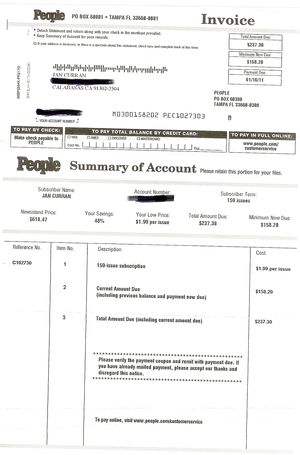I got an email from a publicist yesterday. It began:
You've written several wonderful articles on the ways that technology has influenced reading and writing. May I interest you in news around HubPages, an online publishing community, that's generously rewarding writers – with money, readership and recognition?HubPages gives writers a free, search-enabled, online ad-equipped writing platform. HubPages then uses its in-house technology to run the best possible ads within the content, and – shares 60% of the ad revenue with the writer. In its 4th year, HubPages is now in the enviable position of helping writers of various levels make a living through the site. As the publishing industry tries to find a better business model, rewards for writers are getting more and more difficult. Here's a company that is going against the general trend, and is thriving while helping writers earn a living.
Apparently, she hasn't read my blog very closely, because I am the last person you want to pitch with another get-rich-quick scheme for writers. The way Hub pages works, you blog on their site, they load your post full of ads, and when you get hits, you get rich. They also offer to help you hone your writing skills by using feedback from other "hubbers" and taking advantage of their archive of articles on writing. So I took a look at one of their highlighted articles, this one on fighting writer's block.
Participate in the weekly HubMob: Every week, the HubMob team shares a new topic and challenges Hubbers to write Hubs on it! These topics are search-friendly and perfect for getting your writing back on track when you are running out of inspiration.
I guess another benefit of wasting hours of your life writing for Hub pages, so they have content to game search engines with, is getting to use the word "Hub" a lot in your writing and speech. Blogs are Hubs, writers are Hubbers, and I suppose Bullshit is Hubshit. (This reminds me of a producer I once worked for whose secret for writing science fiction was to stick the word "plasma" or "space" in front of everything. If you call a door a a Plasma Door or a Space Door, that makes it science fiction). A hubber left this sage advice in a comment:
As I mentioned in my last hub if I get a hubbers block, I go out , visit the library, read, go shopping to fill the gap.
You can't get hub wisdom like that anywhere else. So I checked out what other advice this long-time hubber had on how to make Hub pages earn Hub money for Hub me.
Before HubPages, I was a blogger, I started blogging in 2005. I have learned the ins and outs of blogging but never really earn any cents. I knew I am doing something wrong but I don’t know what.
To be honest, my main purpose in writing online is to supplement my income. I have read a lot about full-time bloggers claiming that they support themselves through online writing, apart from blogging they also offer how to become successful through blogging by following what they have written in their e-books, I am sure you have hear about this story too.
[…] I discovered Hubpages in 2007 while looking for job ads at Problogger. I did not hesitate, I sign in at HubPages, which is a user content generated site. Writers are called hubbers and write individual webpages called hubs on any topic. Hubbers earns through Google Adsense which appears on individual hubs and the revenue is split by 60:40. This is achieved by alternating the code used in advertisements: the Hubber's code is displayed 60% of the time, and HubPages' code 40%.
I think it is a fair deal —well this is good for me. I try to learn everything by reading the Forum, I bookmarked hubs, I keep reading and take notes on tips suggested by Hubbers. I ask questions and learn and get educated.
One of the best advise I have read at HubPages was written by Paul Edmondson (Co-Founder and CEO of HubPages) to write articles about topics that don’t change – and he called it evergreen content. Paul compares writing evergreen content to like owning a bond that pays dividend. The hubber writes the article, then it pays a dividend over a long period of time with traffic to your site. With this in mind, I write my hubs following his advise religiously.
You can see how this Hub master's writing skills have improved over the last four years. She still hasn't learned verb/tense agreement or some grammar basics, but I'm sure another couple of years on Hub pages, with plenty of Hub feedback from Hubbers, she'll get there. But she's already earned a Hub Score of 76 (with 100 being the best) from her fellow Hubbers for this insightful piece. How did she win such praise? Well, that led me to an article titled "How to Get Accolades For Writing on Hub Pages" from a guy who has written 100 posts for Hub Pages:
How to get accolades for writing in HubPages came from a reader's question. I was asked the following question, how to get accolades for HubPages? The question is from Hubber pandyprashant. Firstly thank you for the question, that is an accolade in itself. The first two points I would like to make I think are fairly obvious. Firstly you shouldn't write on HubPages with the goal of getting accolades and secondly if your content is worthy it will receive accolades organically. I have written a hub about praise and that best explains I think how to give and receive praise.
With Hub writing skills like that, I'm sure he'll be heaped with accolades…not to mention Hub money from all those Hub ads (though how much he's earned is one Hub nugget of Hub information he doesn't Hub provide). For that, I checked out a hub on "How to Get Started Earning Money on Hub Pages." I knew this article had to be good, because it got a score of 100 from Hub Pages.
Earning money on HubPages is not going to come easily, you are going to have to work for it. You are going to have to put some time into is as well, possibly several hours per day in the beginning. Anything worthwhile takes time and effort, you will find that perseverance pays off. You wouldn’t expect to go to a job and do nothing while being paid a wage would you? Look at HubPages as being a new job. What do you do at a new job?
Are you a full timer? Did you want to start your job as a full time employee? Remember in the working world most full time jobs are 40 hours per week. The benefit of writing at HubPages is you get to pick and choose the hours you work, and break them up as you find necessary. So you can spread that 40 hours over a period of 7 days if you wish. Spending about 5 ½ hours per day on writing.
[…]The benefits of writing on HubPages for a new person is just this. You learned how to write in school and are able to string some words together that make perfect sense. You have good ideas and want to put them to use. At first with any job you will find that your work isn’t perfect. Most companies allow you a ‘do over’, they don’t expect anyone new to get it perfect the first time. HubPages is the same, they allow you to go in and edit your work to make it better. To get your feet wet with writing, you are allowed to write about anything you wish. That’s kind of like getting a factory job and being allowed to run any machine you want to, how great is that?
Hub allows you to write anything you wish. That really is amazing. Sort of like what I am doing right now without the Borg, er, the Hub. I like her factory analogy, too, but more on that in a moment.
She goes into great length on her hub about how to maximize your posts for Goodle Adsense and search engines…things you can do on your own blog without having to share any of that revenue with your blog host or with Hub, those folks who so graciously let you write whatever you want.
She doesn't say anything about how much she is actually earning for all of this effort to make money for Hub pages. The closest she gets is this:
The money will come in time, it’s not something you will find overnight. Just keep writing, continue to improve your writing skills and read the Hubs of others. There are Hubbers writing Hubs about writing. Go meet them, read what they have to say.
Ah yes, all that valuable Hub feedback. That really is worth more than money, isn't it? That Hub love is the real reward.
Basically, Hub Pages is a writing mill…where they get you to write content for free that they use game search engines and generate ad revenue for themselves. You get a percentage of that revenue, which might earn a few pennies for you (if you're very, very lucky), but with 200,000 users, that adds up to real dollars for Hub. You make the pennies, they make the dollars. You are free labor…rats running on a wheel kept happy and engaged by meaningless accolades of other "hubbers" and sense of membership in a community. It's a shrewd way to run a sweatshop and fool the workers into thinking they're not being exploited. But it's still just a food pellet.
You can write the same essays, post them on your own blog and load it with ads…and earn 100% of the ad revenue instead of just a percentage. The downside? Hub doesn't earn money off of your back, you won't be able to communicate in Hub talk or get those meaningful Hub accolades. But you can always create your own language. Mine is Lee talk. You just stick my name in front of everything. That is the end of this Lee (a blog) and I hope all of you Lee-ees (readers) have found it Lee interesting (that's really interesting, in the Lee-sense of the word).
UPDATE: An angry hubber who asked me not to quote her hubmail sent me this hub link to some Hub pages Hub success stories. Of course, they don't reveal what percentage of all Hub users are earning as well as those folks… or how much more money these atypical hubbers might have earned off of those same posts by cutting Hub pages out of the equation, putting them on their own blogs and using Google Adsense, Amazon, etc.
It's also interesting how these few successful Hubbers refer to their ad revenues as "passive" income I guess no work went into writing the 500-600 blog posts they had to write to earn that money. It's that sweat equity that Hub pages is making all of their money from. They are the only ones who are consistently making money, even off the posts that don't earn much for the individual writers.
The guys running Hub have 200,000 people writing free content for them to game search engine with and make money off advertising. Getting other people to do the work for you while you earn money off their labors, now that is real passive income and a genuine money-making opportunity.


